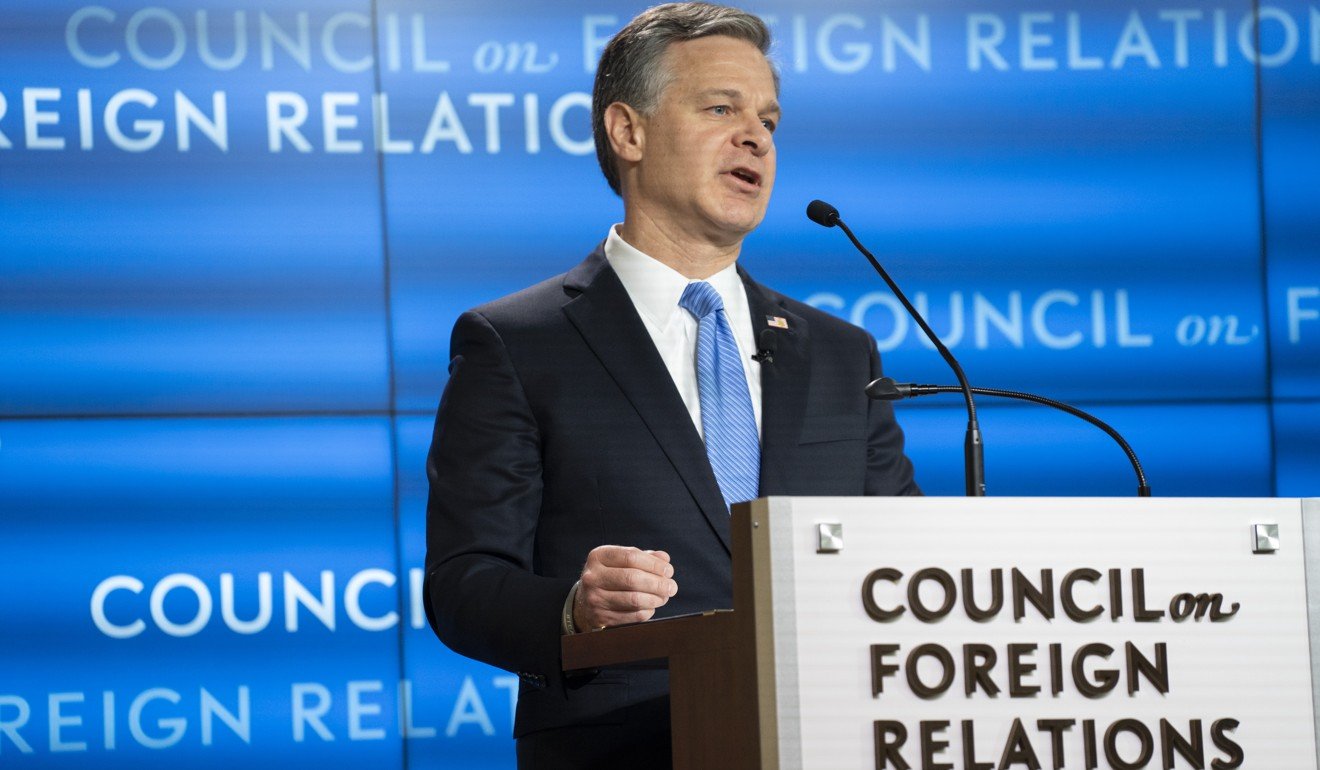Despite the friendly public interactions between negotiators such as Chinese Vice Premier Liu He (left) and US Trade Representative Robert Lighthizer, there has been little sign of a settlement on trade talks, which are of massive importance to the world economy. Photo: EPA-EFE
On May 13, 2019, David Dowel writes on South China Morning Post:
- While all may seem calm in markets despite the failure of the latest round of talks, a protracted trade war risks doing severe harm to the global economy
- China should draw up countermeasures to hit US businesses and be ready to shift its dealings to the EU, Japan and Asean
Liu He, China’s lead negotiator, briefed the Chinese media with beguiling smiles after a visit to Washington so formulaic that it cannot plausibly have deserved the jet-lag, assuring that talks were ongoing and that preparations were under way for a 12th round of negotiations in Beijing.
The only substantial hints on what went wrong, in a week that was intended to be devoted to victorious settlement of the year-long tariff war, came
, who referred to three major differences: an argument over the timetable for removing tariffs; a demand that China’s commitments to boosting US imports should be “realistic”, and; a call for the US to respect China’s sovereignty and dignity, which means the Chinese want the agreement to give them some “face”, just as Trump wants the deal to help him win the 2020 presidential election.
“We are very clear that we cannot make concessions on matters of principle. We hope our US colleagues understand this,” Liu said. “The trade procurement figures should be realistic, the text must be balanced and expressed in a way that is acceptable to the Chinese people and does not undermine the country’s sovereignty and dignity.”
China assumes that negotiation is exactly that – negotiation: that international deals are necessarily a product of give and take, of compromises that take account of the concerns and interests of all parties. For the Trump team, this is clearly not the case. There is a US demand list. There is no list of inducements that would counterbalance these demands. This is all sticks, and no carrots – not even a willingness to dismantle the tariffs once the deal is cut.
It is easy to see why the US gets so passionate about IP, but it is not the “existential” issue so many Americans claim. IP may be central to the US’ view of itself as the world’s technology leader – but it is also a massive earner. The US may have a miserable trade deficit in manufactures, but it has a handsome surplus in services exports, and right up there is the money it earns from royalties in payment for IP rights.
In 2017, this amounted to US$128 billion – second only to earnings from tourism and education services (US$211 billion), and well ahead of financial services (US$109 billion) and transport services (US$89 billion). A tighter deal on IP protections would mean a significant boost to services exports.
Flying in the face of claims that China abuses IP rights is the reality that China pays more to the US in royalties than any other economy. Wanting to sell more IP to China is, just like wanting to sell more beef or soya, a perfectly reasonable aspiration. So is selling legal services – and there can be no bigger beneficiary of negotiating IP arrangements than the US’ army of IP lawyers.

Just as Beijing’s negotiators have underestimated Trump’s willingness to inflict deep and long-term harm on his own economy (and, given the US’ global importance, on the world economy), so Trump’s team has underestimated the capacity of China to weather the challenges the tariff war has generated, or to retaliate in ways that will undermine the US’ long-term dominance of the world economy. Hubris here is playing a dangerous role.

At the same time, and most important of all, I would be turning to the EU, to Japan (as de facto leader of the Trans-Pacific Partnership) and to Asean, and beginning negotiations of trade-opening deals based on the components of the draft US deal. This would thrill businesses in Europe and across the Pacific, which currently see themselves as hapless spectators on the US tariff war. It would also “multilateralise” market-opening measures that at present will only benefit US companies.
Such a shift would not only reassert the existing diplomatic rules around proper give-and-take negotiation, but would alarm and infuriate US businesses as they watch international competitors reap benefits from liberalisation that they hoped would be exclusively their own. No doubt, Beijing could then politely and in due course invite the US to join in these deals.
Gary Reber Comments:
The South China Morning Post is owned by Jack Ma, the founder of Alibaba, the Chinese tech giant Alibaba, which has ties with the Communist Party.
This is another hit piece representing the money interest of the wealthy capital asset ownership class and their corporations who are the culprits by seeking to destroy American jobs in favor of lower cost production in slave-wage labor foreign countries. Sadly, Americans, as consumers, bought into the lower prices, not realizing repercussions of their choices on their ability to produce to consume.
If tariffs had been in place all along to make it financially unattractive for American corporations to gut our manufacturing capabilities and still sell tariff-free to Americans while stealing our livelihoods, this economic devastating scenario would have not occurred. For decades American governing administrations, both Republican Party and Democratic Party politicians, have done nothing to effectively deter this transition, with their govering members benefiting from political contributions and lobbying efforts. Yet they have done nothing to neutralize the profits gained from cheap labor and lack of environmental regulation, making it unprofitable to move corporations out of our country.
Now is the time to reset the stage using, among other measures, to de-incentivize the further gutting of our manufacturing capabilities and make it unfeasible for American corporations to embrace “free, unrestricted trade” instead of fair trade with protections for our own manufacturing capabilities and American worker livelihoods, while simultaneously empowering EVERY child, woman and man to become owners of advanced technologies of automation and “machine” production assets as a source of income as we build an economy that can support general affluence for EVERY citizen.
Strong tariffs are an effective means to penalize those American corporations and their wealthy capital asset owners who have and are gutting our economy. Otherwise, there is no way we can counter the globalization of manufacturing which destroys our own capabilities to produce the products Americans need and want. Yes, for many products that will mean prices will increase. Of course, there’s going to be some initial pain when the tariffs are put in place after years of allowing corporations to run roughshod over the American worker. But then, if we stay the path, American corporations will no longer benefit from slave-wage labor and other cost-saving non-regulated production measures that have benefited them at the expense of Americans in our homeland.


